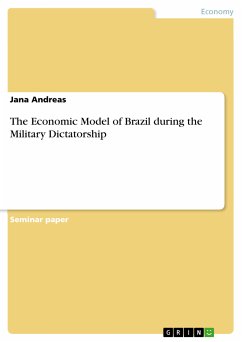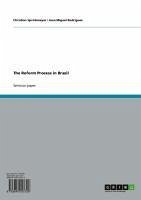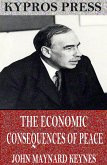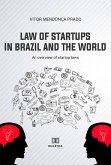Seminar paper from the year 2007 in the subject Business economics - Miscellaneous, grade: 1,3, Baden-Wuerttemberg Cooperative State University (DHBW), language: English, abstract: The long discussed plans of the military to deprive the Brazilian President João Goulart of power were finally realized on 1 April 1964. The military justified this step with the argumentation, that Goulart was a populist. His policy was marked by hyperinflation and the polarization between the right and the left wings. The coup d'état was also necessary to fight the major enemy: the communism. The dictators of the military saw themselves as guarantors for a moral, political and economical reconstruction of Brazil and furthermore as an elitist leadership that connected military values with the strong belief in progress. In the following 21 years they established a new generation of regime-dependent technocrats and bureaucrats. The preconditions for this progressive concept were lying within the fields of national security, elimination of political opposition and communist complots. Brazil found a reliable ally against the 'communist threat' in the USA.On 11 April 1964 Humberto de Alencar Castelo Branco was elected to become the first president of the military dictatorship that was going to last until 1985. This paper is supposed to give an overview about the economic model that the military pursued during their dictatorship. Among that it will show the rise and fall of this model and the consequences for the population.
Dieser Download kann aus rechtlichen Gründen nur mit Rechnungsadresse in A, B, BG, CY, CZ, D, DK, EW, E, FIN, F, GR, HR, H, IRL, I, LT, L, LR, M, NL, PL, P, R, S, SLO, SK ausgeliefert werden.









